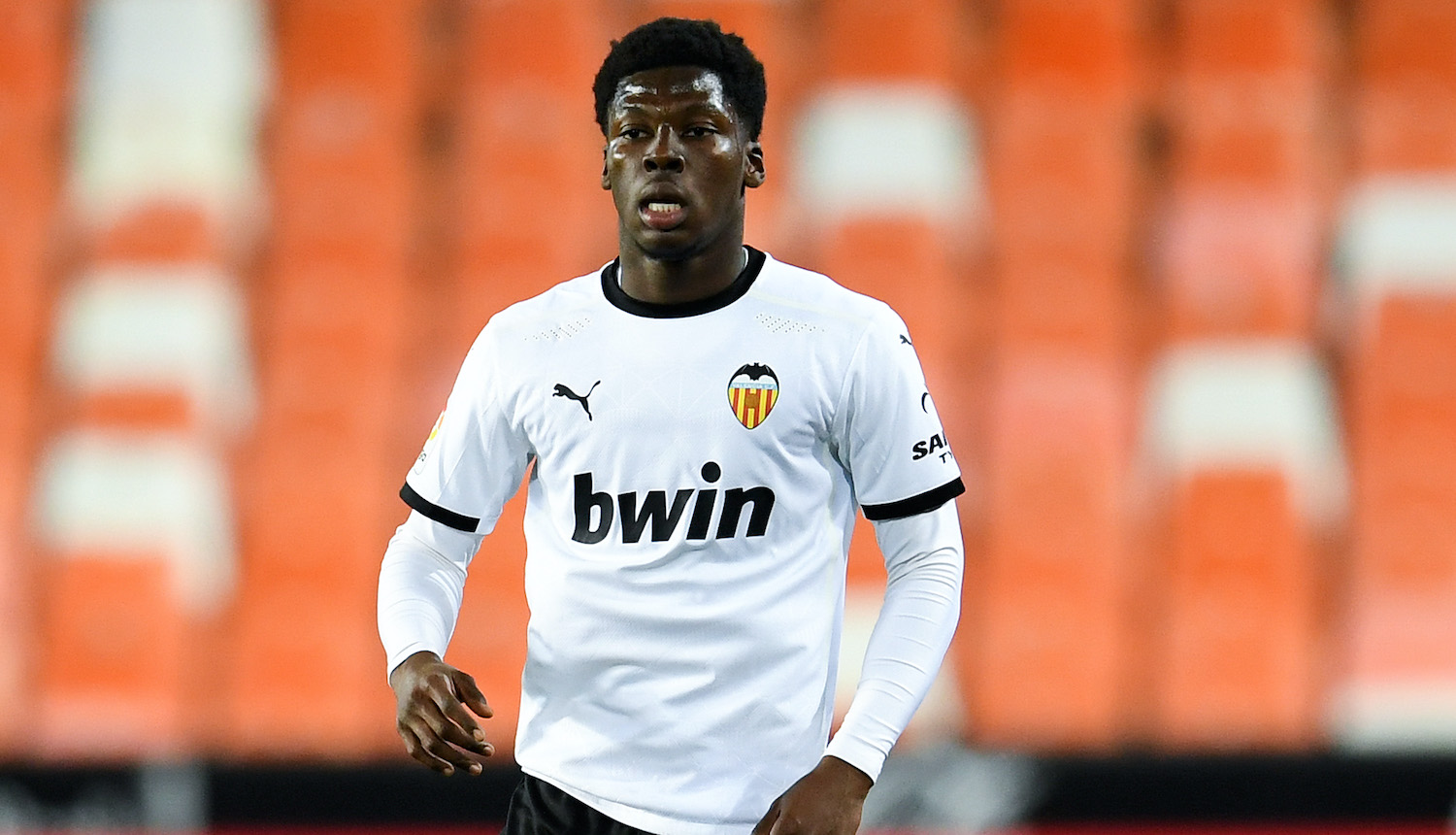Last week, USMNT fans received confirmation that Gregg Berhalter had done it again: Valencia midfielder Yunus Musah has committed his international future to the USA.
Musah made his debut for the USMNT in a pair of friendlies last November, and he chose the United States over Italy, Ghana, and England, the latter of which he'd played for and even captained at youth level since he was 14. His choice to spurn the Three Lions is one of the most promising signs for the state of the program, as players like him have historically never sided with the USMNT. Dual nationals eligible to represent better teams tend to choose the USMNT only when they are on the fringes of those teams (Jermaine Jones, Gedion Zelalem, Julian Green), but stay away if they can crack a starting XI (Neven Subotic, Giuseppe Rossi, Jonathan Gonzalez). Musah was a core piece in one of the most competitive international youth setups in the world, not to mention one of the best players in Arsenal's youth system. His season at Valencia has been uneven, though his talent is obvious, and he also just turned 18.
Yunus Musah is only 17. Today he scored his first La Liga goal 👶pic.twitter.com/wX88TiZXIw
— Goal (@goal) November 1, 2020
What's perhaps most impressive is that a player of this caliber is not a make-or-break-level get for Berhalter in a way it would have been in the recent past. The clearest example here is the case of Julian Green, who got all the way onto the 2014 World Cup roster despite being a lesser player and prospect than Musah by almost any metric. Though Musah is clearly good, he won't walk in onto the team as its best player, or even its most highly regarded prospect. He'll join a player pool that is rapidly getting deeper across almost every position with young, Europe-based talent, talent that was critical in convincing Musah to join its ranks. Jurgen Klinsmann's oft-derided vision of a USMNT free from the anti-competitiveness of MLS is closer to becoming a reality. The corner is being turned right now. Musah is not the end product of a system set up by Klinsmann so much as proof that the process of Europeanization is a rising tide for the program.
Contrast the pedigree of the soggy group that lost to Trinidad and Tobago four years ago with the current USMNT roster. Christian Pulisic, DeAndre Yedlin, and Bobby Wood were the only young players at European clubs on the 2017 roster, while the team that'll play Jamaica and Northern Ireland this week has members who play in 10 different European nations, and it's not even a full A-team. The United States has sent players over to Europe for decades, but never this young and never in these numbers. Christian Pulisic, Gio Reyna, Tyler Adams, Weston McKennie, and Sergiño Dest aren't just playing big roles in the best European leagues like Clint Dempsey, Michael Bradley, or Jozy Altidore (kind of) did; they are standing out for the best teams in those leagues and doing so at the very start of their careers. There's a significant difference between spending a couple seasons with Roma and being a key part of Barcelona's present and future as a 20-year-old who can do this:
Messi tees up @USMNT defender Sergiño Dest for his second career Barcelona goal! 🇺🇸🎯
— FOX Soccer (@FOXSoccer) March 21, 2021
(via @beINSPORTSUSA)pic.twitter.com/9Z0AVIkNiO
But it's not just the top-end of the player pool that's impressive; it's the deep bench of talent developing across the Atlantic. Given the ages of those involved, it is a safe bet that not every player, no matter how much promise they have, will deliver on their potential. That's the way this works for top prospects in any competitive setup, and you don't have to look any farther than Green for proof. The very best international teams in the world have incredibly deep player pools, which keeps competition for spots fierce and insures against injuries and spells of bad form. To succeed at the highest level, you need players like Reyna, Adams, and Dest, but you also need the swelling group of youngsters behind them, which currently includes Joe Scally at Borussia Mönchengladbach, Joshua Pynadath at Ajax, Taylor Booth at Bayern Munich, Brandon Servania at SK Polten, Richy Ledezma at PSV, CJ dos Santos at Benfica, Johan Gómez at Porto, Matteo Ritaccio at Liverpool, and the dozens more players like them who might never break into the USMNT first team but represent a growing tide of possibility.
Musah's choice to join the USMNT is an endorsement of this process, proof that it is paying off, since he's expressly picking the USA over a team that almost made the most recent World Cup final. It would be disingenuous to read this as a sign that the USMNT can compete with England on the field, or even that the USMNT will inevitably overtake them. Musah will have to compete for a spot with the U.S., but it will certainly be a lot easier to get onto the field than it would be with England, and that's definitely a factor. But with Musah (who had a totally viable chance of eventually becoming an England regular if his development went well) and Dest (who would be the Netherlands' starter right now had he chosen them) both siding with the U.S. over more heralded national teams, we're seeing that the USMNT is increasingly seen as a cool, exciting, up-and-coming contender befitting players of real talent and ambition. We presently have a formidable roster full of players competing at the highest level in Europe, who might hail from all over the world but have united around the United States. Now comes the fun part.






